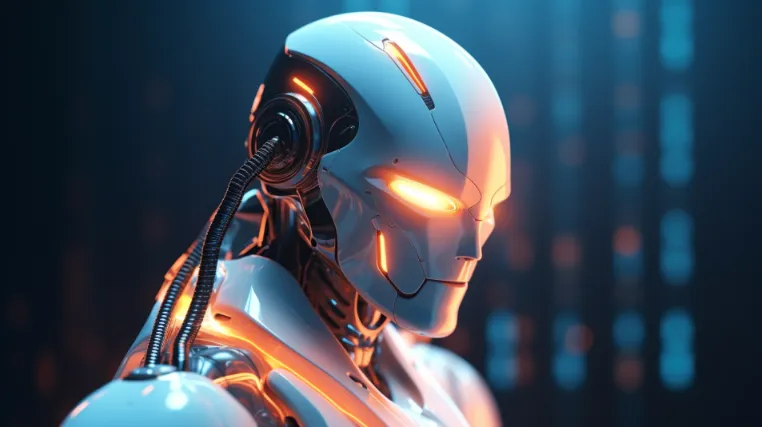Which AI Can Write Code?
AI, or artificial intelligence, has been a game-changer in many industries, including software development. One of the most revolutionary developments in the field of AI is the ability to write code.
This has many implications for the technological landscape, making software development more efficient and cost-effective.
In this article, we will be exploring the different types of AI that can write code and the pros and cons of using them.
Explanation of the Concept of AI Writing Code
AI writing code refers to the process of using artificial intelligence to generate software code. This process can be done through different methods, including rule-based AI, machine learning-based AI, deep learning-based AI, and hybrid AI.
Importance of AI Writing Code in the Current Tech Landscape
The ability of AI to write code has many implications for the technological landscape. It can help reduce costs and increase efficiency in software development, allowing developers to focus on more complex tasks. This can result in the development of higher quality software in a shorter amount of time.
Brief Overview of the Different Types of AI that Can Write Code
As mentioned earlier, there are four main types of AI that can write code. These are rule-based AI, machine learning-based AI, deep learning-based AI, and hybrid AI. We will be exploring each of these in more detail in the following sections.
Rule-Based AI
Definition and Explanation of Rule-Based AI
Rule-based AI refers to a system that operates based on a set of predefined rules. These rules are created by humans and are used to guide the behavior of the AI system. In the context of coding, these rules can be used to generate code based on specific criteria.
Examples of Rule-Based AI that Can Write Code
One example of rule-based AI that can write code is App Inventor. This tool allows users to create apps by using a drag and drop interface. The system then generates the code based on the user’s inputs.
Pros and Cons of Using Rule-Based AI for Coding
The main advantage of using rule-based AI for coding is that it is relatively easy to implement. However, it has limitations in terms of complexity. It can only generate code based on predefined rules, which can be limiting in some cases.
Machine Learning-Based AI
Definition and Explanation of Machine Learning-Based AI
Machine learning-based AI refers to a system that can learn from data and improve its performance over time. In the context of coding, this means that the system can generate code based on patterns it has learned from a dataset.
Examples of Machine Learning-Based AI that Can Write Code
One example of machine learning-based AI that can write code is DeepCoder. This system uses machine learning algorithms to generate code based on a set of inputs and outputs.
Pros and Cons of Using Machine Learning-Based AI for Coding
The main advantage of using machine learning-based AI for coding is that it can generate more complex code than rule-based AI. It can also improve its performance over time as it learns from more data. However, it requires a large amount of data to be effective, and it can be challenging to interpret the code generated by the system.
Deep Learning-Based AI
Definition and Explanation of Deep Learning-Based AI
Deep learning-based AI refers to a system that uses artificial neural networks to learn from data. In the context of coding, this means that the system can generate code based on patterns it has learned from a dataset, similar to machine learning-based AI.
Examples of Deep Learning-Based AI that Can Write Code
One example of deep learning-based AI that can write code is DeepCoder. This system uses a combination of neural networks and program synthesis to generate code.
Pros and Cons of Using Deep Learning-Based AI for Coding
The main advantage of using deep learning-based AI for coding is that it can generate more complex code than rule-based AI and machine learning-based AI. It can also generate code faster than other methods. However, it requires a large amount of data to be effective, and it can be challenging to interpret the code generated by the system.
Hybrid AI
Definition and Explanation of Hybrid AI
Hybrid AI refers to a system that combines multiple AI technologies to achieve a specific goal. In the context of coding, this means that the system can use a combination of rule-based AI, machine learning-based AI, and deep learning-based AI to generate code.
Examples of Hybrid AI that Can Write Code
One example of hybrid AI that can write code is the system developed by Intel. This system uses a combination of rule-based AI and deep learning-based AI to generate code.
Pros and Cons of Using Hybrid AI for Coding
The main advantage of using hybrid AI for coding is that it can leverage the strengths of multiple AI technologies to generate high-quality code. However, it can be challenging to implement and requires a significant amount of resources to be effective.
Conclusion
Summary of the Different Types of AI That Can Write Code
In this article, we explored the different types of AI that can write code, including rule-based AI, machine learning-based AI, deep learning-based AI, and hybrid AI.
Comparison of the Different Types of AI
Each type of AI has its strengths and weaknesses, and the choice of which to use depends on the specific use case.
Future Outlook on the Use of AI for Coding
The use of AI for coding is still in its early stages, but it has enormous potential to transform the software development industry. As AI technology continues to improve, we can expect to see more advancements in this area in the future.






